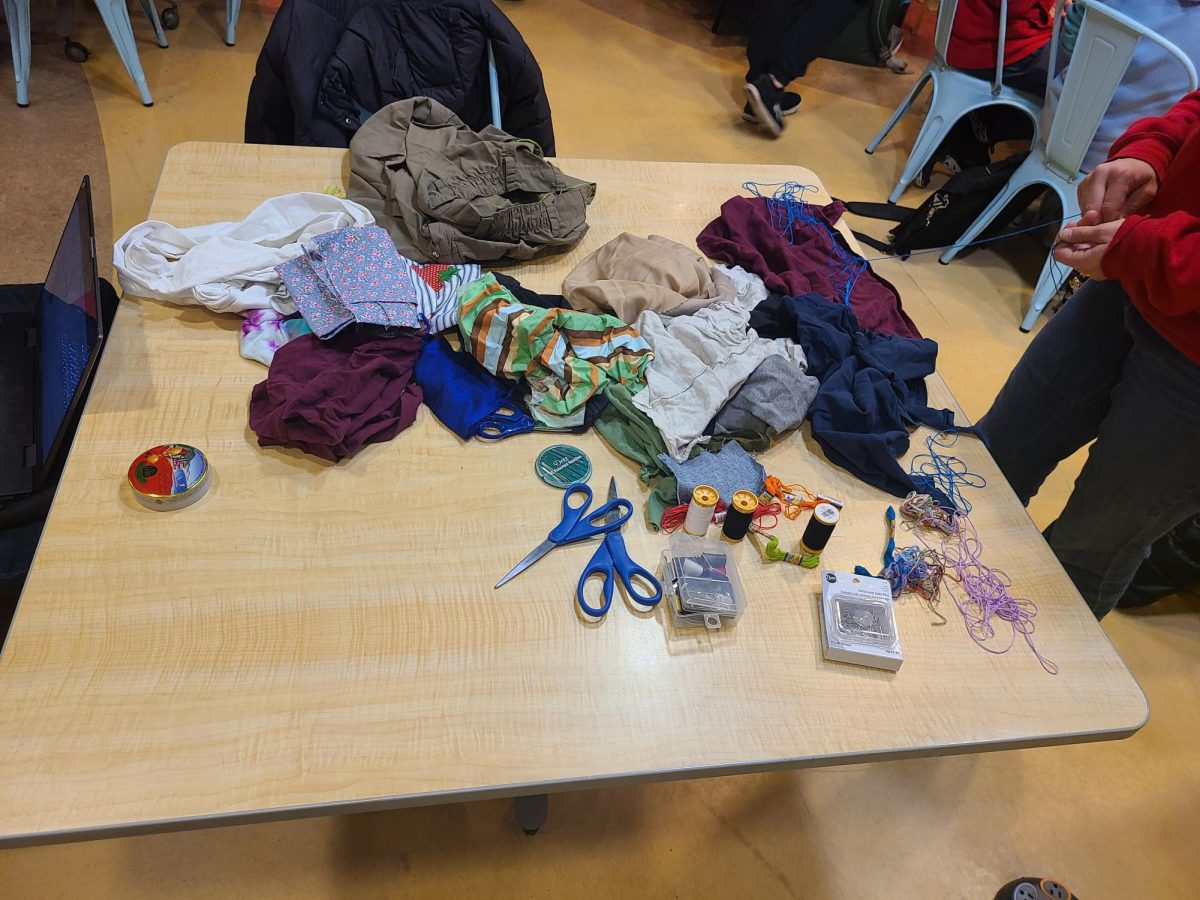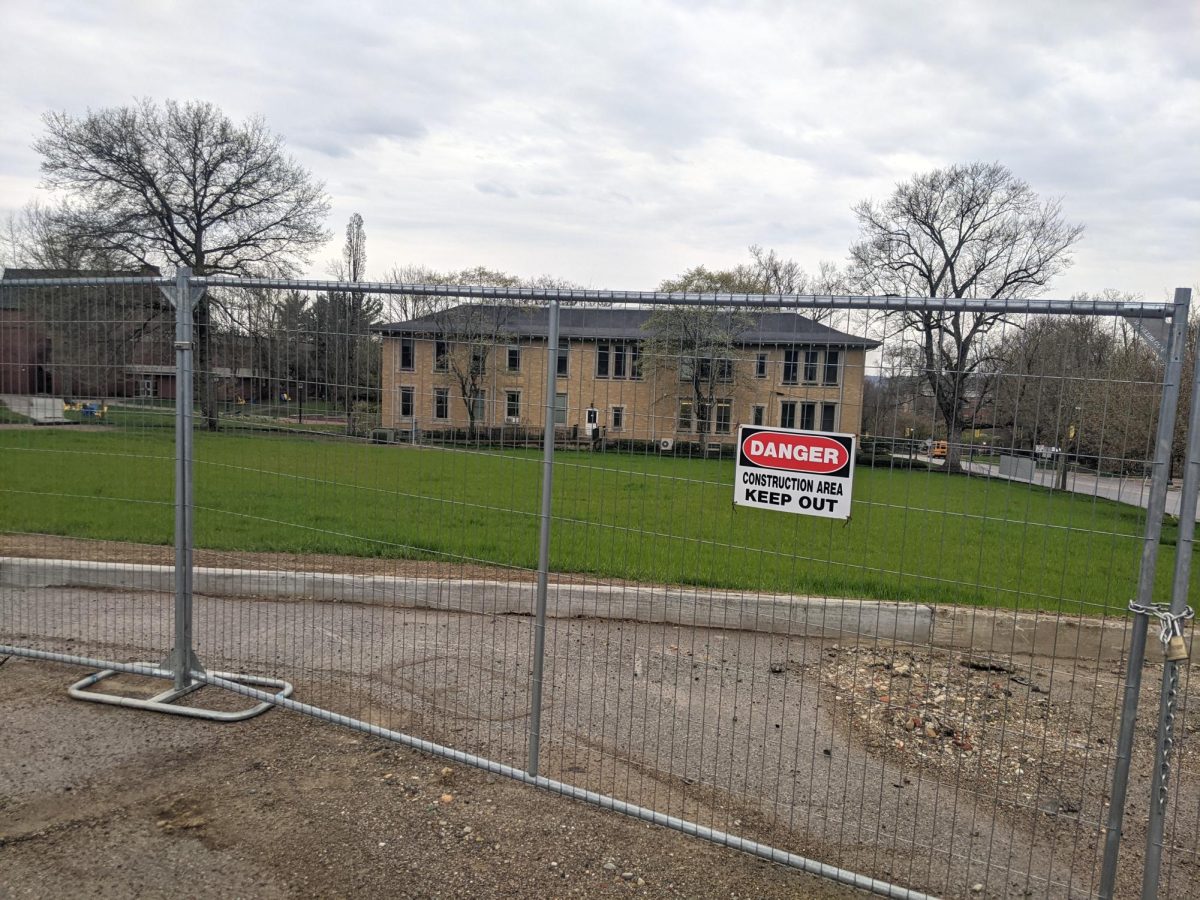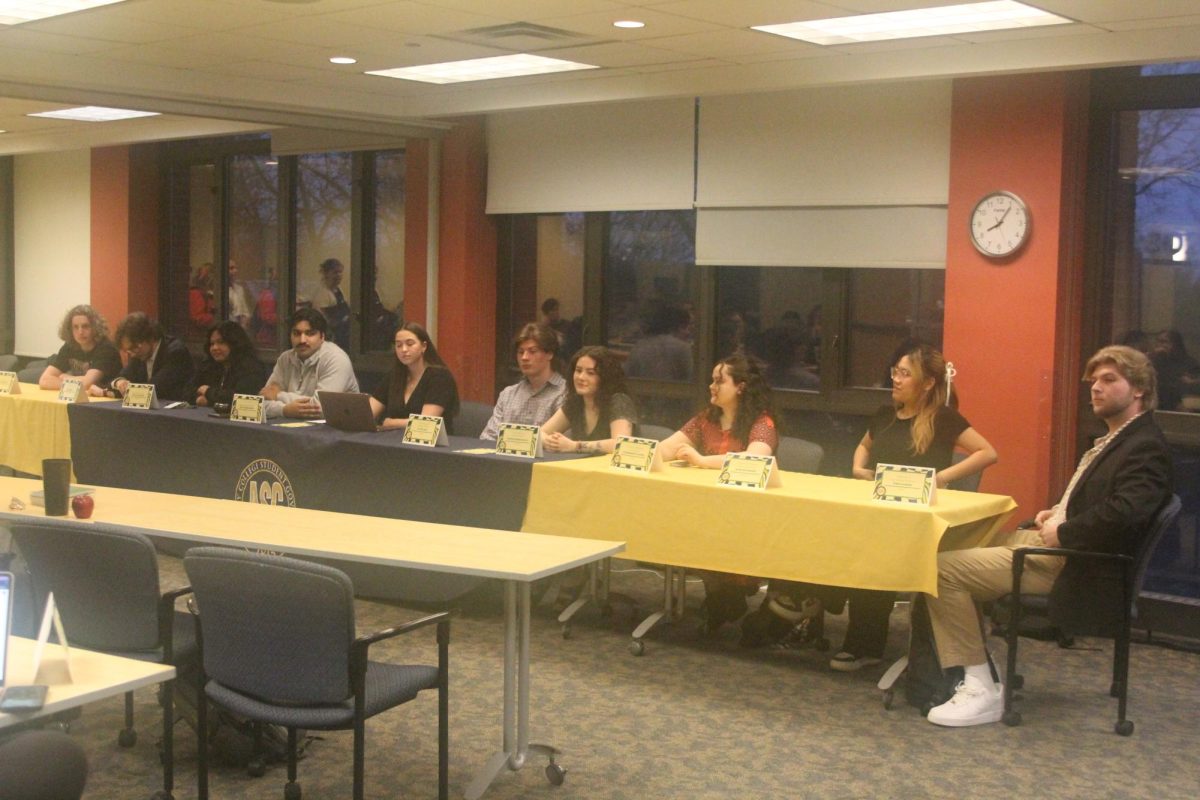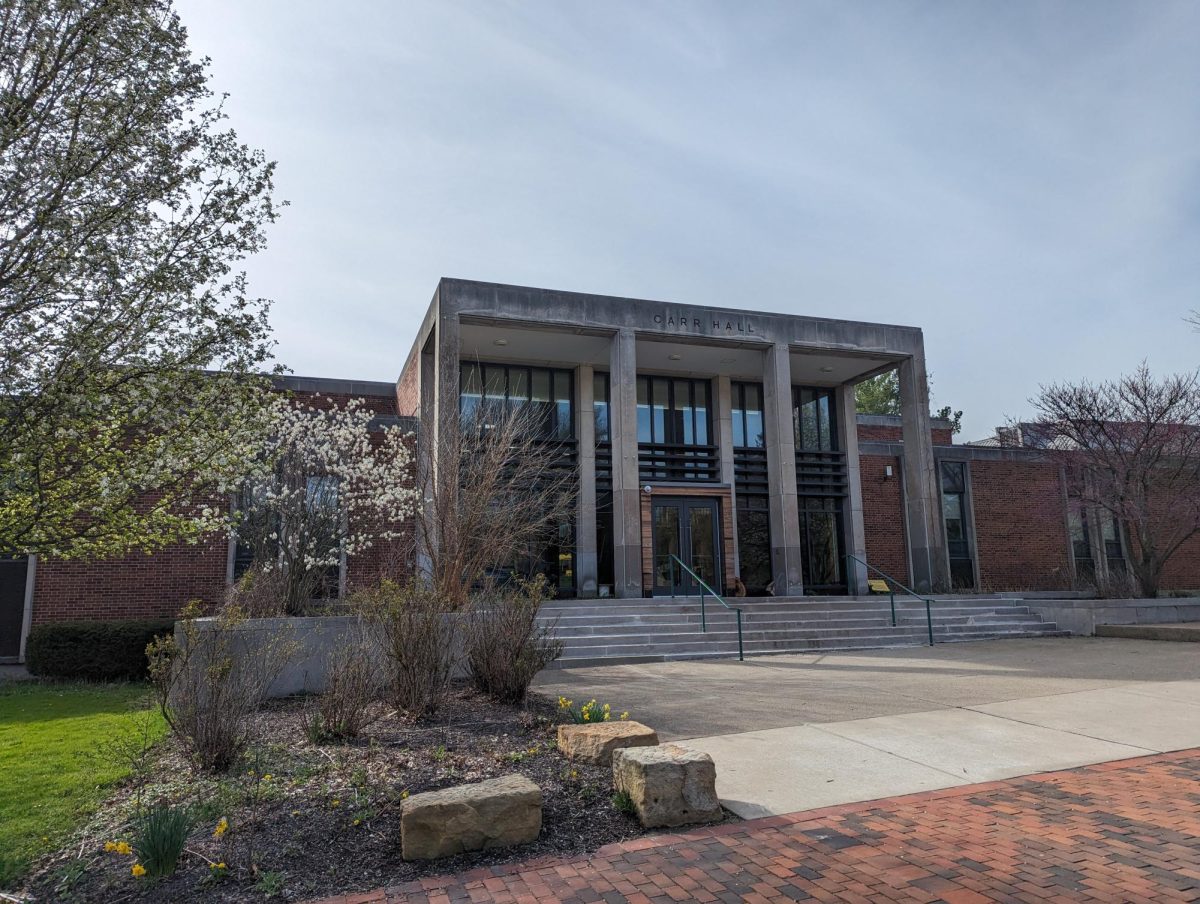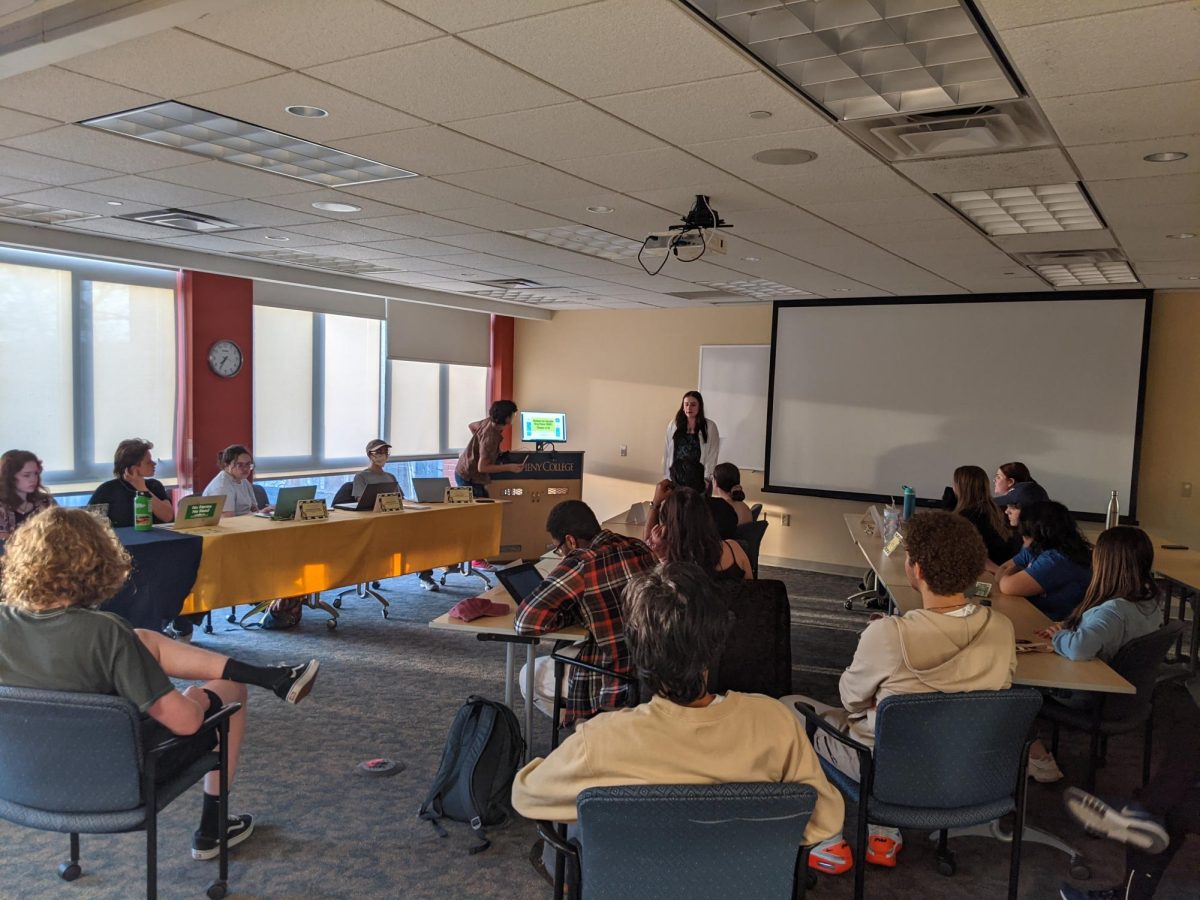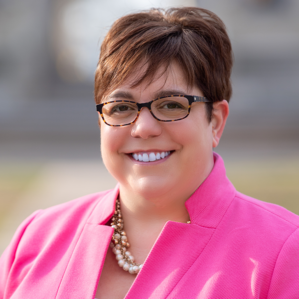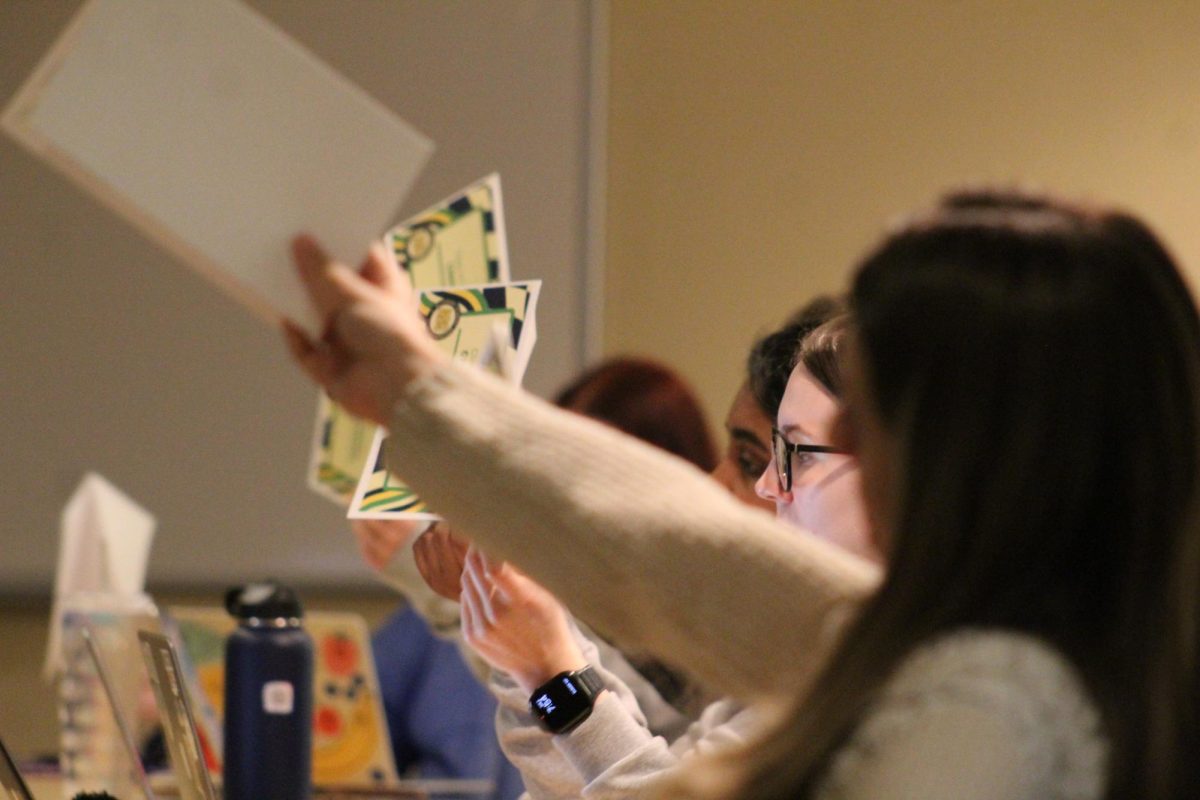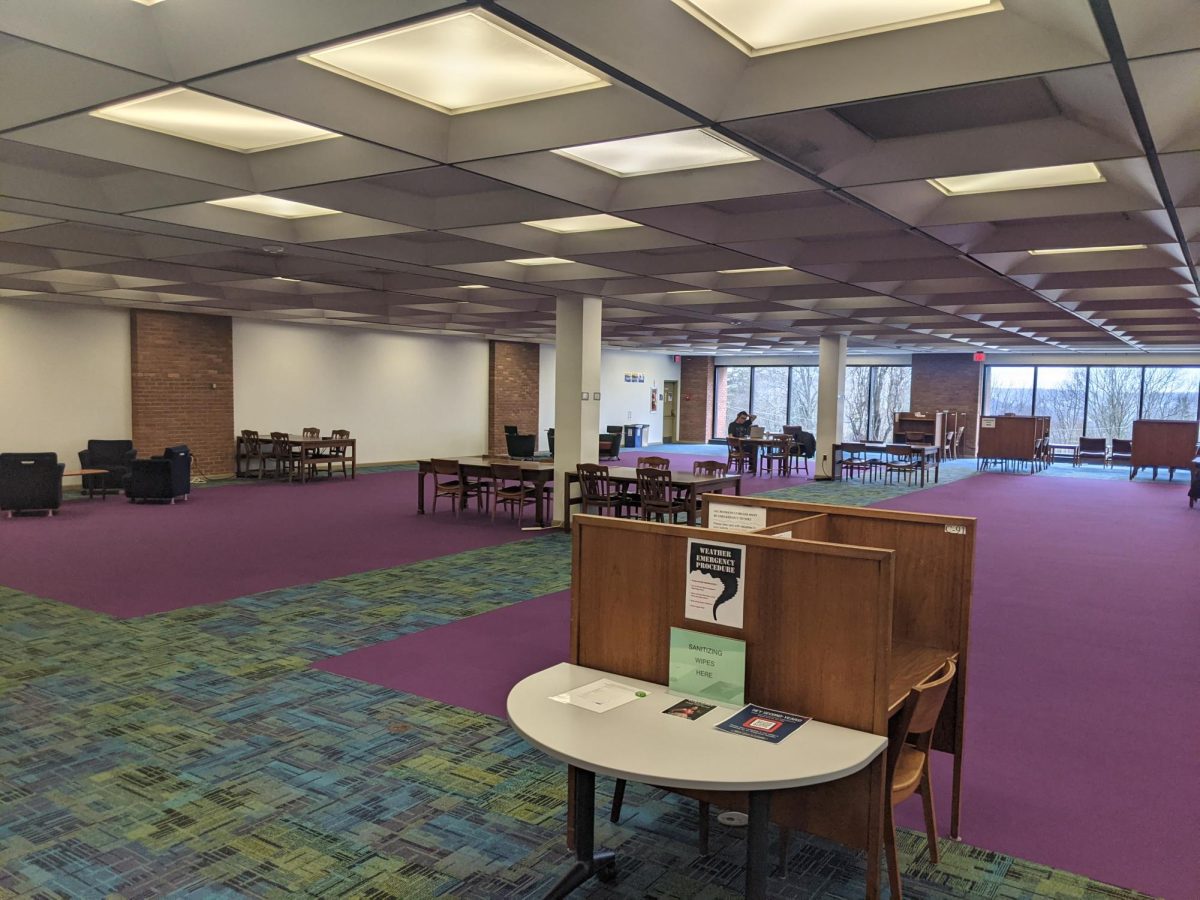Waste reduction is one of the ways people can live more sustainably. In an era of fast fashion, Students for Environmental Action seeks to reduce waste by hosting a mending workshop where students can learn how to fix their damaged clothes rather than purchasing new items.
SEA invited students to bring their clothes to GFC and learn how to fix them while enjoying an open tab on Thursday, Nov. 30 at 7 p.m. in Grounds for Change.
Director of Sustainability Kelly Boulton, ’02, described how the textile industry has been increasingly producing more waste throughout the years and the effects of it.
“Our fashion industry has increasingly shifted towards items that are made of lower quality materials and they are designed to last for a season where maybe you wear them a couple times, and then you move on,” Boulton said. “What we are finding is that places that accept donations of clothes are just flooded with clothes and they are of a lower quality, so they are just worthless.”
Boulton said one of the ways to avoid contributing to fashion waste is by being more thoughtful about investing in higher-quality clothing that will last longer.
“For students buying clothes on a budget, sometimes it is better to slowly save and pay a little bit more for something or find it at a thrift store for higher quality but lower price,” Boulton said. “This sweater that I am wearing, I actually got this, it is an all-wool sweater but I got it at a rummage sale for a quarter.”
Boulton pointed at a few patches on her sweater where she mended holes and said it would probably last a few more decades.
“I think sometimes finding that balance between if you have time to thrift and if you don’t have time, slowly save some money to invest in things that are a little more quality,” Boulton said.
SEA President Julia Sonen, ’24, shared some of the ways that, as a student, she is able to incorporate sustainable habits into her life.
“My goal for this year, I think I’ve just about succeeded, is to not buy any new clothing items, beyond underwear and socks,” Sonen said. “Actually, my entire household here on campus has been transitioning to zero waste items so we’ve been loving (using) the bar soap for dish soap and yes, it’s still consuming but we don’t have the plastic bottle to deal with.”
Sonen said some of the other items people should be more thoughtful about purchasing are electronics.
“The global sustainability movement as a whole has been talking about electronics because of all the heavy earth metals in those electronics that impact both on the land with the mining but also on the people,” Sonen said. “We’ve got a lot of societal injustices and really some terrible living situations and exploitation of people in terms of extracting those materials.”
Recycling and repairing electronics, similarly to mending and donating clothes, is a way electronic waste can be mitigated, according to Sonen.
“It is the billionaires and corporations that are creating so much of this waste and this total abuse of the planet and much of what they are doing is supported by the businesses of the people that have to buy clothing to live, that have to buy food to live,” Sonen said. “And if what is available to them, is things that are not sustainable, that money will end up filtering and often moving out of the common people and into those corporations.”
By reducing consumption, Sonen said everyone can reduce how much of their wealth is being fed to corporations that ultimately continue to damage the environment.
External Activism Director Laura Obergefell, ’26, said she brought a pair of socks to the workshop where people were helping each other mend their clothes while looking up instructions and videos.
“I think the workshop gives a bit of a mindset change as it doesn’t take that much effort or much supplies or much experience at all to add this little skill to your life that can save you money and save from using more resources and buying more things,” Obergefell said.
Some other sustainability-based efforts SEA is and has planned is encouraging people to use green boxes in both dining halls, the Trashion Show next semester, and the multiple mending workshops that have been held during the semester according to Obergefell.
Students for Environmental Action hosts mending workshop
Students for Environmental Action supplied a variety of supplies that attendees could use to repair their clothing at the mending workshop in Grounds for Change on Nov. 30.
Story continues below advertisement
About the Contributor
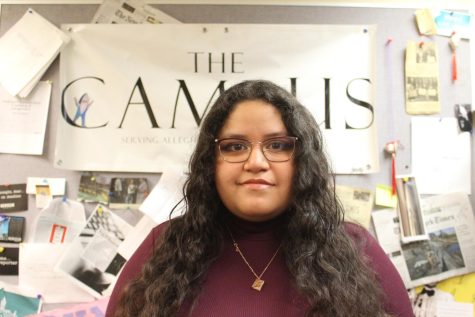
Evelyn Zavala, Staff Writer
Evelyn Zavala is a senior from San Francisco. She is majoring in Business and minoring in Journalism in the Public Interest. This is her fourth year on staff as a writer. In her free time, she enjoys reading and playing games.



